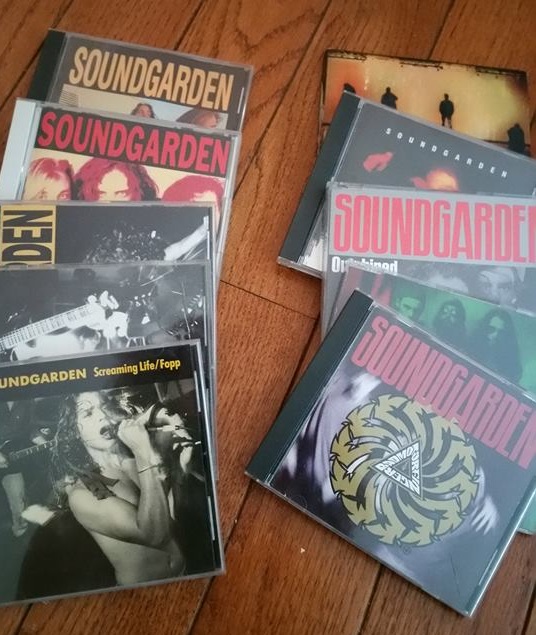May 29, 2017
Somebody that I Used to Know
Learning of the death of Chris Cornell was like hearing that an old and once-cherished friend who I hadn’t seen in 20 years had died. That is what I felt, and I suppose it is literally true. His music was everything to me in the early 90s, but I left it behind when Soundgarden broke up and Cornell went off in some strange direction of which I did not approve. He was now simply someone I used to know, to borrow from Gotye, and there was a weird delay while I tried to conjure the old feelings and reminisce about the past. It took pulling out my old Soundgarden albums–I have them all, EPs, singles with B-sides, etc–and listening to the music that I can honestly say formed me.

While the news of his death was shocking it was at the same time not surprising for those of us who have known his music from the beginning. Depression, anxiety, suicide–all were themes that ran through his work. Grunge in general was the music of the stoners, the outcasts, the kids with absentee parents and broken homes who found solace in each other and in music to make up for their lack of a healthy family life. To say you were a big Soundgarden fan in the early days, then, reveals something about you and your teen years/early 20s. Cornell himself said in an interview once that he liked sad music, because when you’re sad, sad music make you feel better.
So it was that I was shocked to hear of his death while also not terribly surprised that it was by suicide. His family disputes this, of course, and perhaps it was Ativan that caused him to hang himself in the bathroom of a hotel room, but that is a short-sighted theory. The suicidal drive has been there from the start. Family members always think they know someone best, but so often they do not understand how much a person can hide, even from those closest to them. Indeed, that very fact is a dominant theme in all of Cornell’s lyrics–hiding, masks, having two faces, not recognizing oneself in the mirror, and feeling locked inside yourself without a mode of authentic expression. That last one was what hooked me on Soundgarden, being a person on the shy side who often finds herself unable to find the right words. They come out wrong, or they don’t come out at all. It’s why writing is my preferred mode of expression. And Cornell’s as well. Some examples:
Your face has a different exterior
permanent disguise (from Hunted Down)
Someone says
my words are out of balance
Nothing to say
Dying words
I bury everyday
Nothing to say (from Nothing to say)
Dying to squeeze out
the ugly truth
for everyone to hear (from Mood for trouble)
I did not want to fight
I did not want to kill
I wanted to be real
I wanted to believe
that I was not the only one alive
(also from Mood for trouble)
The words we say
never seem to live up to
the ones inside our heads (The day I tried to live)
The mirror shows another face
another place to hide it all
and i’m lost behind
words i’ll never find (Seasons)
There are countless other examples (see the entire song Fell on Black Days) but you get the picture. As I had stopped listening to his music I figured he was getting along ok, happily married with beautiful children and living in France and churning out pop-ish music. Happier music. But the depression demon followed him. And it is the folly of a generally happy person to believe it could be conquered.
 Filed by cynthia rockwell at 10:14 am under Music
Filed by cynthia rockwell at 10:14 am under Music
Comments Off on Somebody that I Used to Know